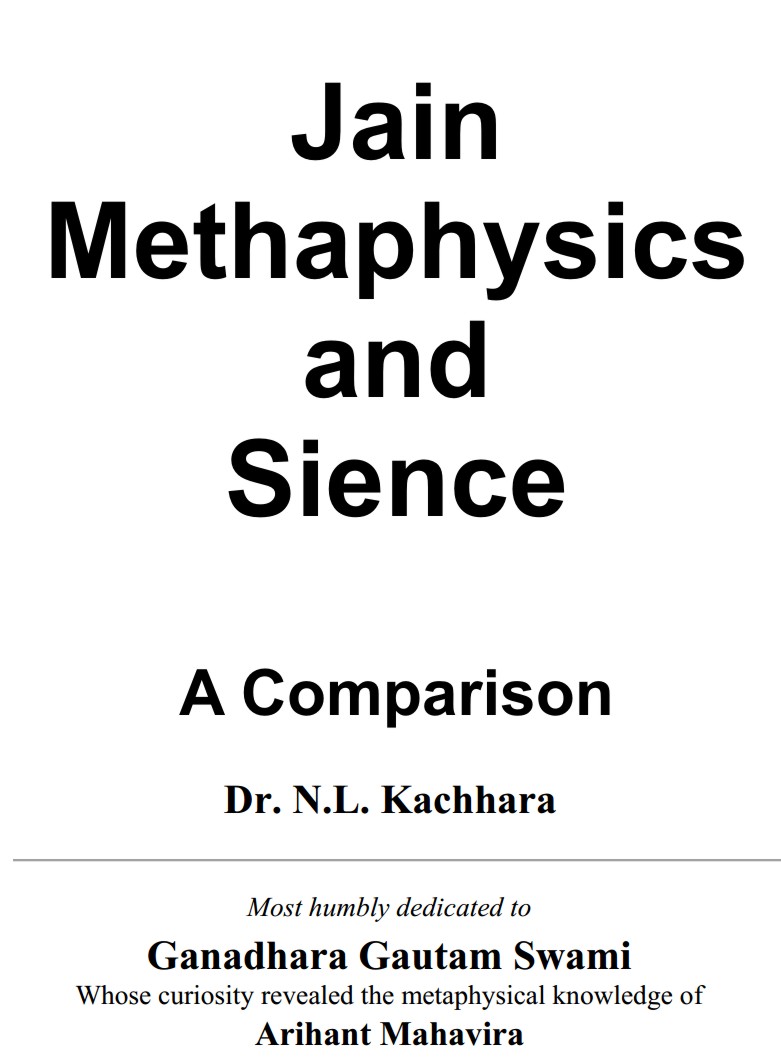Consciousness is an attribute of the soul. In the general sense consciousness is one but in a specific sense it is of two types; pure consciousness and impure consciousness. Pure consciousness means the atman; impure consciousness is the atman with attached karma. Pure consciousness is pure intelligence. Impure consciousness is of two types karmic consciousness and consciousness of karmic enjoyment. The former is due to total existing karma and the later is due to fruition of some karma. Thus we have three types of consciousness (i) cognitional consciousness (ii) karmic consciousness, and (iii) consciousness of karmic enjoyment. All kinds of knowledge and power of cognition is cognitional consciousness. Our freedom of actions of mind, speech and body constitute the karmic consciousness. The actions may be inauspicious, auspicious and pure. The inauspicious actions are known as demerit; the auspicious actions as merit and pure actions are neither merit nor demerit. Demerit favours de evolution of soul and merit favours evolution and heavenly life in future. Pure actions do not bond karma and help in salvation. The experience of pain and pleasure on account of fruition of karma is consciousness of karmic enjoyment. This consciousness mainly concerns with experiencing the fruits of karma, good or bad.
The consciousness of immobile beings is least developed. These beings lack power and knowledge, have only one sense of touch and therefore have no option but to experience the fruits of karma. Immobile beings are unable to protect themselves from external influences and adverse conditions. So they possess consciousness of karmic enjoyment. But immobile beings do react to situations. For example, the root of a tree grows in the direction of water and the branches grow in the direction of sun. The sensitive plant mimosa pudica contracts on touch. Plants flourish in favourable climate and fade away in adverse climate. Science has established that plants exhibit a sense of fear when they are cut and a sense of pleasure when watered. Music is found to have a favourable influence on flowering and pollution adversely effects the growth. Other immobile beings also show similar behaviour.
The mobile beings are at a higher level of consciousness and are relatively more powerful and knowledgeable. They also have karmic consciousness in addition to consciousness of karmic enjoyment. Mobile beings can move and defend themselves. These abilities increase with consciousness. As the karmas reduce, the power and knowledge increase. Though karma is powerful in determining the behaviour of a soul it is not the sole controller of our personality as shown below.
A person has two kinds of potentialities ability potential or energy and action potential or power of action. A person must possess both to be able to act. To appreciate this important aspect we should know the relationship between soul, body and mind. Soul and body and so also mind and body, mutually influence each other. The soul, body or mind individually cannot explain our personality. The soul can perform its tasks like, development of consciousness, bliss and vitality to the fullest extent. But when consciousness expresses through the body, it is partial and incomplete. Sense organs, mind and intellect are means of expression of our consciousness. Bliss is an experience; the vitality is expressed through body and sense organs. Expression of consciousness and bliss need body. Without a body the soul is helpless. Both mind and body influence the soul. Actually speaking, the karma bound by the actions of mind and body are the influencing factors.
Some scholars believe that soul is influenced by external factors only. According to the principle of non-absolutism (anekanta) the effect may not necessarily be due to external cause alone the cause may also be internal; the doctrine of karma accepts both the external and internal causes. If external cause were the only influencing factor then no one would ever break the cycle of karma. Similarly, the internal cause karma is not the sole operator. There are situations which are unaffected by karma. For instance, time is also powerful. When right time comes, the soul exercises its power (irrespective of karma) and comes out of shackles of bondage breaking all barriers of attachment and perversity.
Thus we note that both internal and external factors affect our fate and destiny. The knowledge increases as karmas reduce. When the person develops right perception, cognitive consciousness appears. This is the beginning of spiritual journey. As a person advances on this journey with his initiative, austerity and penance he gets closure to his ultimate aim of salvation.
 Dr. N.L. Kachhara
Dr. N.L. Kachhara
